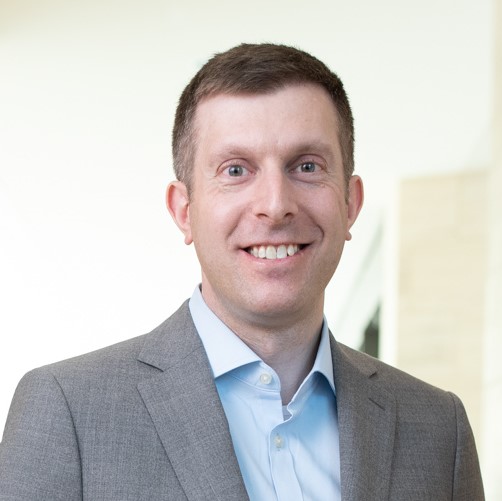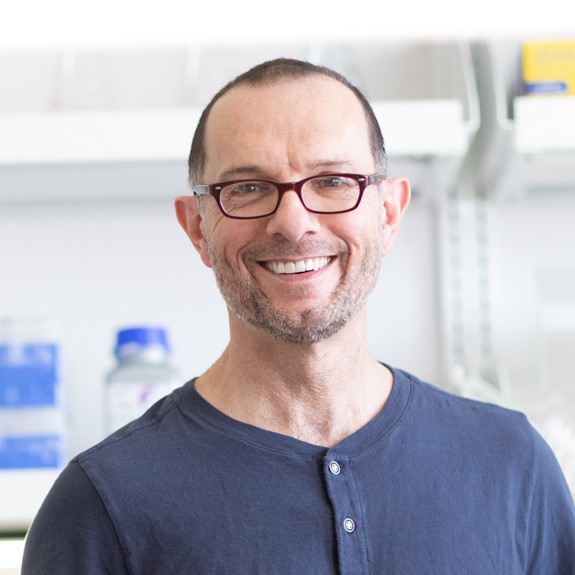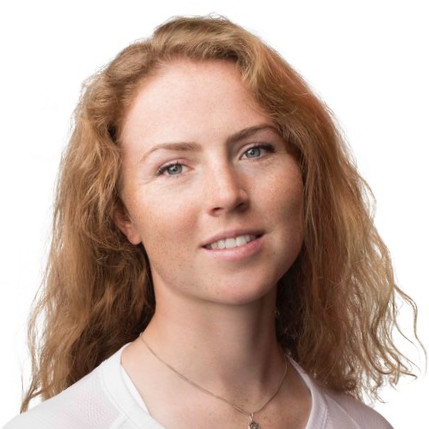MOVE STUDY
CURRENTLY RECRUITING
The MOVE (Molecular Optimization Via Exercise) Study will explore the effects of exercise on aging. It is well-known that exercise has many benefits for healthy aging. What are they? How do they happen? By comparing older elite athletes with healthy older adults who have never regularly exercised, this study will help researchers and clinicians understand how exercise affects the cells and tissues in the body to bring about these health benefits.
Buck professor Simon Melov described MOVE at a recent community seminar. Watch it here
To participate, fill our the interest form on our clinical trials page
CENTER DETAILS
Participants:
Healthy adults, 65-80 years old
Healthy Older Adults: sedentary, exercising no more than one day a week for 60 minutes
- Leisure walking allowed if walking does not result in feelings of increased heart rate, rapid breathing, and/or sweating.
- Persons cycling as a mode of transportation are not considered sedentary
- Persons with a physically active job are not considered sedentary
- No history of consistent high activity level in the last 25 years
Older Elite Athletes: evidence of current physical activity at an elite level for their age, as well as a consistent history of high activity level
Location: Buck Institute
Dates: Currently recruiting
Duration: Participation includes a preliminary phone screening, a screening and enrollment visit, a testing visit, and a sample collection visit; participation will last no more than 12 weeks.
Compensation: eligible participants receive up to $275
Status: recruitment beginning soon
Sponsor: The Buck Institute through a foundation gift
Links: Study Details | Molecular Optimization Via Exercise (MOVE) | ClinicalTrials.gov
ID: NCT06540287
Study type: Observational study
Number of participants: 40 Healthy Older Adults, 40 Older Elite Athletes
Last updated: Dec 2, 2024
Number of visits:
- Phone screening
- Screening/Enrollment Visit
- Testing Visit
- Sample Collection Visit
List of study procedures:
- Medical history
- Height, weight, BMI, body composition, hip, waist, upper arm, and calf measurements
- Vital signs
- Resting ECG
- Fasting blood draws for laboratory tests
- Physical function tests
-
- Maximal leg press
- Submaximal effort exercise test
- Maximal effort cardiopulmonary exercise test
- Cognitive function tests
- Quality of Life tests
- Urine collection
- Muscle sample collection
You may be eligible if you…
- Are between the age of 65 – 80 years old
- BMI >19 to <35 kg/m2
- No personal plans during the expected study period
- Meet criteria for healthy older adults or older elite athletes
You might not be eligible if you…
- Require assistance with any activity of daily living, excluding continence
- Live in a skilled nursing facility or residential care facility
- Have an abnormal bleeding or coagulopathy disorder, including a history of a bleeding disorder, wound healing disorder, or clotting abnormality
- Have the following chronic diseases:
- Musculoskeletal conditions that would prevent completion of exercise testing
- Elevated blood pressure
- Diabetes
- Pulmonary disease that limits exercise capacity
- Cardiovascular disease, including, but not limited to congestive heart failure, coronary artery disease, significant valvular disease, congenital heart disease, serious arrhythmia, pulmonary emboli, stroke, or symptomatic peripheral artery disease
- Abnormal blood lipid profile
- Cancer within the last two years, other than non-melanoma skin cancer or chronic lymphocytic leukemia
- Chronic active or latent infection
- Abnormal liver enzyme tests
- Chronic renal insufficiency
- Abnormal hematocrit
- Blood donation within 3 months
- Autoimmune disorders
- Alcohol consumption more than 7 drinks per week for women or 14 drinks per week for men
- Current tobacco use
- Recreational drug use
- Significant weight change
- Lidocaine or other local anesthetic allergy
- Other disorders that may impact participation, as determined by a study clinician
John Newman, MD, PhD

John Newman, MD, PhD, is an Assistant Professor at the Buck Institute for Research on Aging and an Associate Professor in the Division of Geriatrics at University of California San Francisco (UCSF). His career goal is to translate our expanding understanding of aging biology to improve the care and help maintain the independence of older adults. His research at the Buck Institute studies the molecular details of how diet and fasting regulate the genes and pathways that in turn control aging, focusing on the ketone body beta-hydroxybutyrate and how its molecular signaling activities involving epigenetics and inflammation regulate aging and memory in mice.
Dr. Newman is also a geriatrician who cares for hospitalized older adults at UCSF and the San Francisco VA Medical Center, focusing on preserving mobility and preventing delirium.
Simon Melov, PhD

Dr. Simon Melov
Dr. Melov was the third faculty hire at the Buck Institute when it opened its doors in 1999 and currently serves as co-director of the Institute’s Mouse Phenotyping and Single-Cell Biology cores. An Australian, Dr. Melov obtained his bachelor’s degree in human genetics from the University of New South Wales in Sydney, Australia, and then completed his PhD in biochemistry at Imperial College London in the United Kingdom. He carried out postdoctoral studies on the genetics of aging at the University of Colorado, Boulder, and on mitochondrial disease at Emory University in the Department of Molecular Medicine. He also holds adjunct appointments at the Andrus College of Gerontology, University of Southern California, and Dominican University of California in San Rafael.
Dr. Melov is facile in multiple aspects of aging biology, which is now termed geroscience. He has published more than 100 papers and has twice received the Glenn Award for Research in Biological Mechanisms of Aging. He was the first faculty member at the Buck Institute to receive a senior scholarship from the Ellison Medical Foundation. He was one of the founding editors of the highly respected journal Aging Cell and served as the inaugural and founding chair of the Gordon Research Conference on Oxidative Stress and Disease.
Dr. Melov has extensive experience in working with biotech and pharma, having received numerous competitive awards from this sector and accumulated broad experience serving as a consultant. He has also served on more than 30 study sections for the National Institutes of Health.
Brianna Stubbs, PhD
 Dr. Stubbs is a world expert in exogenous ketone metabolism and its implications for performance, resilience and health-span. She completed her PhD in Metabolic Physiology at the University of Oxford, studying the metabolism and the application of exogenous ketone salts and esters. Whilst completing her studies, she competed on the British International Rowing Team, and was a two-time World Champion lightweight athlete. Brianna is currently Lead Translational Scientist in the Business Development Team at The Buck Institute for Research on Aging where she is focused on the translation of ketone body research into consumer products and drugs that target healthy aging.
Dr. Stubbs is a world expert in exogenous ketone metabolism and its implications for performance, resilience and health-span. She completed her PhD in Metabolic Physiology at the University of Oxford, studying the metabolism and the application of exogenous ketone salts and esters. Whilst completing her studies, she competed on the British International Rowing Team, and was a two-time World Champion lightweight athlete. Brianna is currently Lead Translational Scientist in the Business Development Team at The Buck Institute for Research on Aging where she is focused on the translation of ketone body research into consumer products and drugs that target healthy aging.
